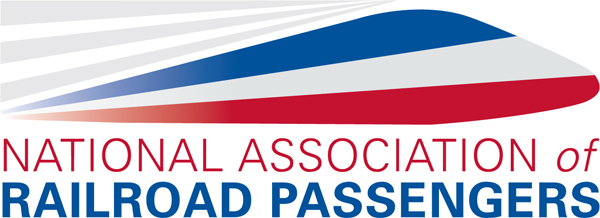Hotline #744
October 23, 1992
The X2000 train set Amtrak imported from Sweden arrived in Dundalk, Md., earlier than previously expected, on October 20. Yesterday, the train was brought to Washington and will begin testing in November. Public rides may begin in January, but for now, when the train is not being tested, it will be kept on track 16 at Union Station. The X2000 is capable of providing electric train service at 150 mph on existing rights-of-way using active tilt mechanisms. Thus, it has an advantage over TGV in not requiring new rights-of-way.
Schedules change this weekend. Among the highlights are a fourth San Joaquin and a tenth San Diegan. Also, Metrolink commuter service on three lines in the Los Angeles area begins October 26. For more details, see your October newsletter.
The remaining potential high-speed corridors eligible for ISTEA grade-crossing elimination money have bee announced. Besides Chicago to Milwaukee, Detroit, and St. Louis, which was announced last week, there are Vancouver-Seattle-Portland-Eugene; San Diego-Los Angeles-Bakersfield-Sacramento-Bay Area; Miami-Orlando-Tampa; and Washington-Richmond-Charlotte.
The Bush Administration took some criticism for announcing the corridors on the eve of the presidential election. Indeed, Bush rode a private train in the South this week and we have heard he mentioned the Charlotte corridor. But we have no indication that he used his trip as an opportunity to talk about Amtrak.
Rep. Bob Carr (D.-Mich.), who is likely to be the next chairman of the House Transportation Appropriations Subcommittee, addressed a conference in Dearborn, Mich., this week on the topic of intelligent highway vehicles, or IVHS. Carr, who is not fond of light rail, told the group that "any city that comes to me for light rail will have to have an IVHS proposal as well." Needless to say, NARP believes that light rail is beneficial without the need for IVHS and does not agree with that position.
A very unusual and terrible accident involved the westbound California Zephyr October 17 near Price, Utah. A woman passenger walked off the back of the train looking for the bathroom. She lay on the tracks overnight before a Southern Pacific freight crew found her alive. Amtrak is investigating why no one, including station staff in Denver and on-board staff, noticed the door was not locked.
Massachusetts Transportation Secretary Richard Taylor will resign December 1. He is seen by many as the greatest political obstacle to a rail link in the Boston Central Artery at this time.
Good news for Amtrak -- this week, transcontinental air fares went up from about $420 to $500 and the Washington-New York air shuttle went from $140 to $150.
Elizabeth Brater, mayor of Ann Arbor, Mich., agrees with our August 20 letter to Transportation Secretary Andrew Card asking for high-speed rail instead of a third Chicago airport. She has written Card expressing her belief.
The Oregon Association of Railroad Passengers reports that the Oregon Highway Users Conference defeated by just one vote a resolution in support of H.R.4414, the Ampenny bill. It is too bad the resolution failed, but it does show a diversity of opinions on this important topic among the highway user community.
The Delaware Valley Association of Railroad Passengers reports that about 60% of the ridership lost during SEPTA's Railworks construction project this summer has returned since service was restored October 1. There will be a similar shutdown next year.
Joseph Vranich reports that his book, Supertrains, is now in its fourth printing, which is great because of its very clear outline of how transportation policy went wrong in this country.
